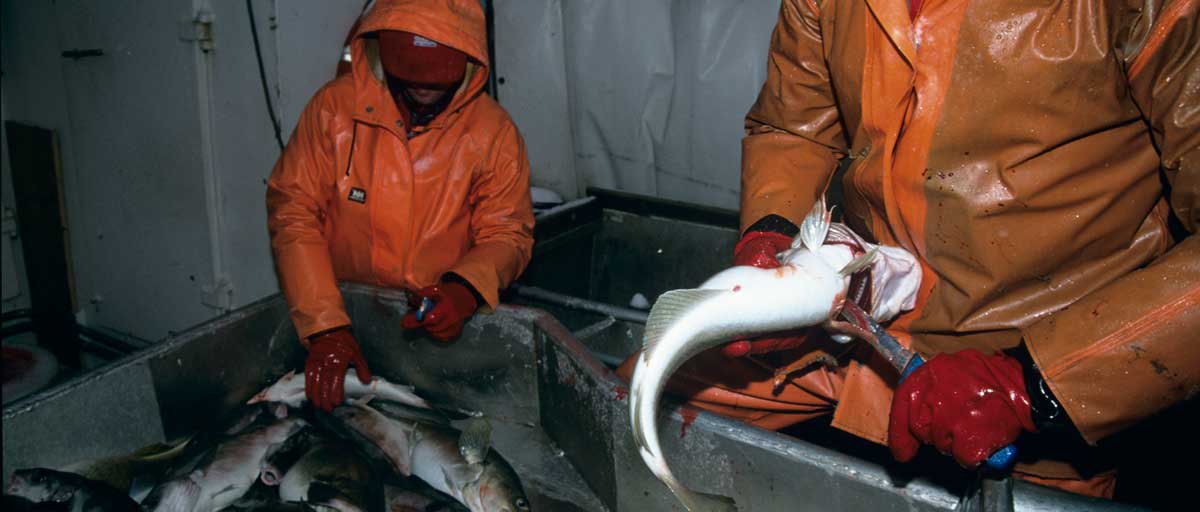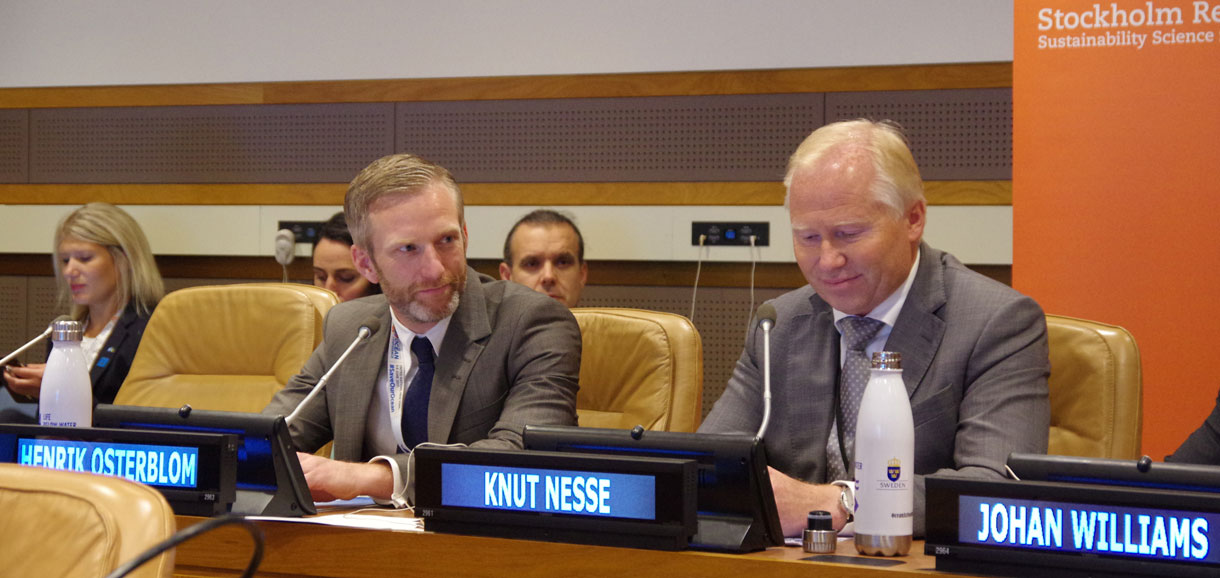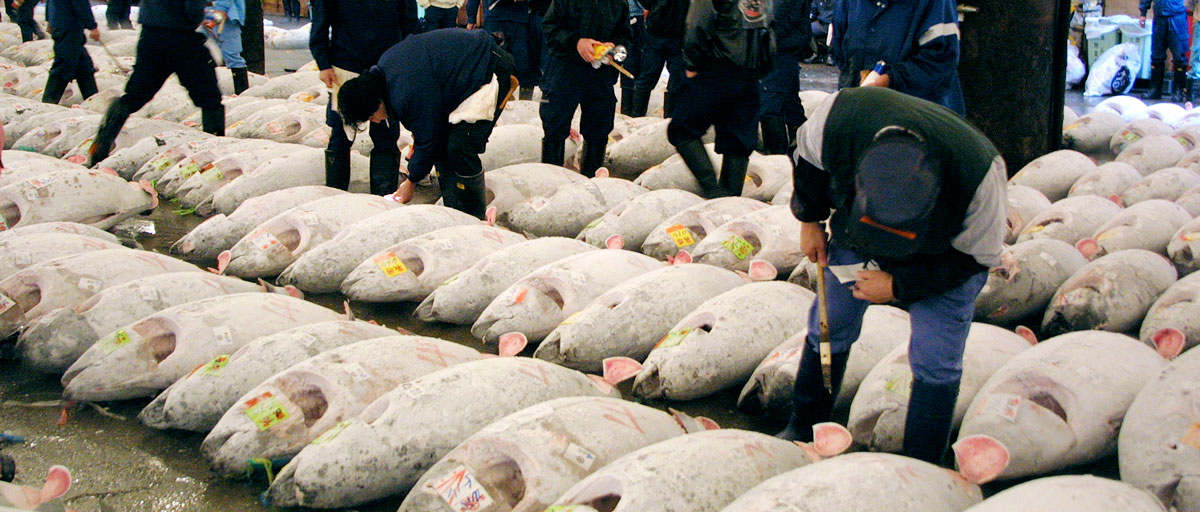ocean stewardship
New centre seafood initiative captures world’s attention

Photo: M. Almqvist
Bildtext får vara max två rader text. Hela texten ska högerjusteras om den bara ska innehålla fotobyline! Photo: B. Christensen/Azote
- The Seafood Business for Ocean Stewardship (SeaBOS) initiative marks the first time that companies from Asia, Europe and the US have come together with the aim to end unsustainable practice
- The initiative is the result of several years’ efforts to convene the most significant actors within the seafood industry
- The initiative will work to include more companies and report on progress on an annual basis, starting with a meeting in June 2018
More companies join largest seafood producers’ quest for ocean stewardship
Charoen Pokphand Foods PCL, one of the world’s leading agro-industrial and food businesses conglomerate engaged in shrimp and fish aquaculture, has become the tenth formal member of the Seafood Business for Ocean Stewardship (SeaBOS) initiative, which aims to lead a global transformation towards sustainable seafood production.
The initative was launched and developed by centre researcher Henrik Österblom and colleagues, and marks the first time that companies from Asia, Europe and the US have come together with the aim to end unsustainable practices such as overfishing, modern slavery and destructive impacts on habitats and non-target species.
During the UN Oceans conference in New York in early June 2017, Österblom and Knut Nesse, CEO of Nutreco, a global leader in animal nutrition and aquafeed, presented the SeaBOS initiative. Accompanied by H.R.H Princess Victoria of Sweden, an Advocate for the UN Sustainable Development Goals, and Isabella Lövin, Deputy Prime Minister of Sweden, they presented a statement that called for action to protect our oceans.
We pledge to work diligently to eliminate IUU products and any form of modern slavery in our supply chains. We will develop a code of conduct for our own operations and for our suppliers, in order to deliver on these commitments. We will also work towards full traceability and transparency throughout our supply chains
SeaBOS statement
Government commitment crucial
In the statement, the companies pledge to work ”actively together with governments to improve existing regulations for fisheries, for aquaculture, and for the ocean.” This pledge connects with a number of pleas for governments to take part in the transformation of the seafood industry.
”We strongly urge all governments to work together to address IUU fishing. In order for wild capture fisheries to further develop, we encourage governments to end overfishing and rebuild depleted stocks. This critically means respecting scientific advice on quotas and the sharing of best practices in regulations.”

Henrik Österblom and Knut Nesse, CEO of Nutreco, a global leader in animal nutrition and aquafeed, presented the SeaBOS initiative at the UN Oceans conference in June 2017
Keystone actors
The statement is the result of several years’ efforts to convene the most significant actors within the seafood industry. It all started in 2015 when research led by Henrik Österblom identified 13 transnational corporations controlling 11-16% of wild marine catch and up to 40% of the largest and most valuable fish stocks. They were described as “keystone actors” because they dominate all parts of seafood production, operate through an extensive global network of subsidiaries and are profoundly involved in fisheries and aquaculture decision-making.
“We invited the leaders of these companies to a dialogue to build trust and develop a common understanding about the state of the oceans,” said Österblom.
“We were delighted so many companies accepted our offer. This shows they are aware of the urgency of the situation and willing to engage in these issues.”
Today, the initiative has materialised into one of the most important cross-sector collaborations within the global seafood industry. SeaBOS currently includes the two biggest seafood companies by revenue, Maruha Nichiro and Nippon Suisan Kaisha; two of the biggest tuna specialists, Thai Union Group and Dongwon Industries; the two biggest companies manufacturing feeds for aquaculture, Nutreco (parent company of Skretting) and Cargill Aqua Nutrition; the two biggest farmed salmon companies, Marine Harvest and Cermaq (subsidiary of Mitsubishi); and recently the Japanese tuna purse seine company Kyokuyo as well as the agro-industrial conglomerate CP Foods.
The initiative will work to include more companies and report on progress on an annual basis, starting with a meeting in June 2018.
Download the SeaBOS statement here
Henrik Österblom serves as deputy science director at the Stockholm Resilience Centre. He holds a position as senior lecturer in environmental sciences and his primary research interests are 1) Globalization of marine social-ecological systems, 2) International relations and the dynamics of transnational corporations and 3) Seabirds and ecosystem change.







